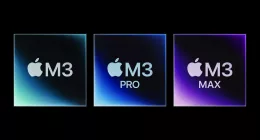A new biometric Face Verification Service (FVS) was recently launched by the Department of Foreign Affairs and Trade (DFAT), the Australian Federal Police (AFP), and the Department of Immigration and Border Protection (DIBP)
The FVS is a one-to-one image based verification service that can match a person’s photograph against an image on one of their government records, such as a passport photo, to verify their identity. In instance, when a person uses their citizenship record as evidence of their identity to apply for a passport, the system could enable the passport office to ask DIBP to confirm the identity of the passport applicant.
At the first phase, data to be swapped by the new service will be citizenship images, with visa, passport, and drive license photos to follow. Last year, the Attorney-General’s Department (AGD) declared plans to expand the FVS service in the future to other government agencies, and to include images such as visa, passport and driver license photos.
Justice Minister Michael Keenan said the capability to share images was necessary given the higher-quality fraudulent identity documents being produced by criminals. He released a government report today that claimed identity fraud cost Australians $2.2 billion each year.
The AU$18.5 million system is designed to replace existing manual, ad-hoc facial image sharing arrangements between agencies to verify identities, and avoids the creation of a centralized database by agencies receiving queries running image searches against their own databases.
Keenan said the first phase of the platform – allowing DFAT and the AFP access to images on citizenship applications held by Immigration so they can verify identities – was now live.
Other types of images such as visa and passport photos will be added over time, he said, with the government also currently talking to states and territories to bring driver license images into the FVS.
Next year the government will extend the system to include identification of unknown persons, to assist investigations of serious offences. Keenan said access in this case would be restricted to “a limited number of users in specialist areas.”





